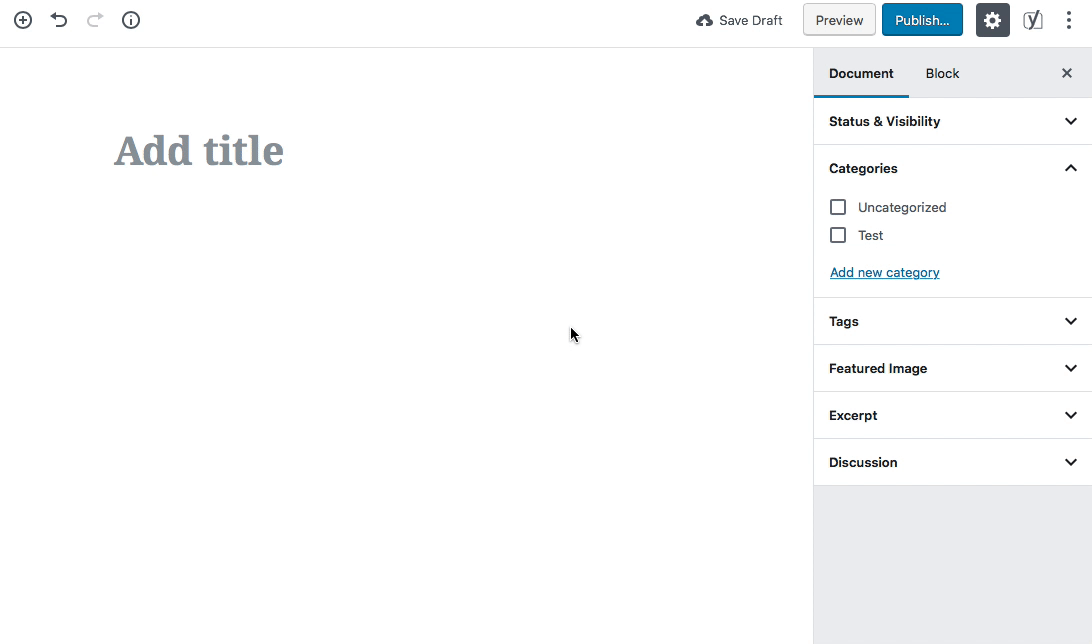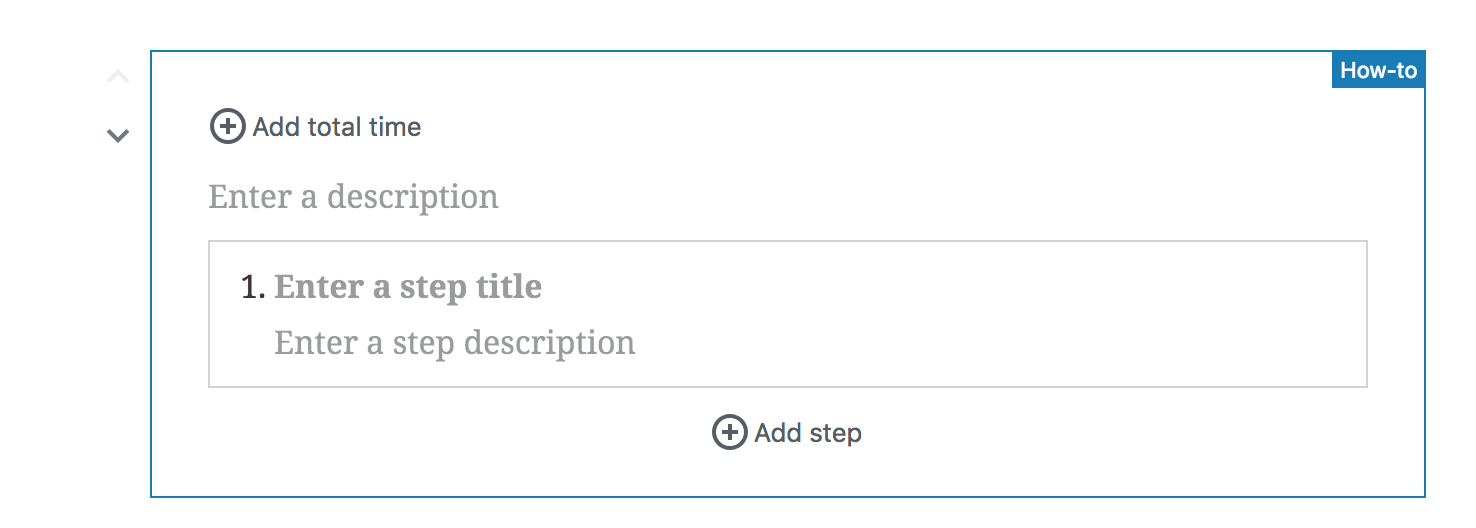Are content blocks the future? And, what’s the benefit for SEO?

In Yoast SEO 8.0 you’ve met with the Yoast SEO Gutenberg sidebar. Since the 8.1 release, you can see the snippet preview in action in this sidebar. These are our first step of integrating Yoast SEO with Gutenberg. But there is more to come. Shortly, we’ll also introduce a whole new concept: Yoast SEO content blocks. In this interview with our founder Joost and (then) CTO Omar, we explore content blocks: What are they? What do they have to do with SEO? And what are Yoast’s plans with blocks? Let’s go!
Q. We’ve heard the term content blocks often lately. Can you explain what those blocks are?
Omar: Blocks are single components that you can use in the Gutenberg editor. You can see them as separate content items. With these items, you can structure your content and build a page. A bit like you’re building a page with pieces of LEGO. Every content block can have its own styling and meta data. Because of this, a block becomes more valuable and this opens up lots of opportunities, also in terms of SEO.

Q. What opportunities of blocks are you referring to?
Omar: For us, the advantage lies mostly in the meta data you can include in a block. You can add structured data to your content block, for instance. With structured data you tell search engines in a schematic way what your content is about: is it a recipe, a book or a film? Structured data exists for many things (entities): products, but also blog posts, FAQs or How to‘s. You can find them all on schema.org.
Joost: Let’s say you have a FAQ section on your site. If you add structured data to your FAQ block it’s directly clear to Google that this block provides answers to certain questions and what these questions and answers are. Therefore it’s easier for Google to match them up with a certain query. Because of the structured way, it’s set up it’s easier to point to an answer directly, which could be an advantage for voice search as well. Voice search typically works well if it can read out loud one singular answer to a question.
Q. If you have content blocks with structured data, does that increase your chance of ranking?
Joost: We can’t say that it will instantly make you rank higher. It will help Google understand your content better, which is always good and might give you an edge. And, of course, structured data is essential, if you’d like to get rich results in the search engines. We also suspect that if you have a page that is schematically divided into blocks with their own – related – keywords, it might be easier to make your page rank for multiple related keywords too.
Q. Ok, sounds great. But how is this connected to Yoast SEO?
Joost: We’re developing Yoast SEO content blocks with schema.org meta data. Shortly, we’ll launch the first blocks: FAQ Schema structured data block and How-to Schema blocks. This means you’ll be able to select such a block in the Gutenberg content editor. The block will help you fill out all the necessary data for that specific entity. In case of the How to, for instance, it will have fields for the time it’ll take and steps that are required. And, of course, it will add the applicable structured data to those fields. This ensures your content is offered in the best way possible to search engines.

Omar: What’s more, it helps content creators and editors to provide the most complete information in a structured way on their site. Some content creators intuitively add all relevant information in their content, but if you use content blocks with structured data you’re sure you’re adding all necessary information to, for instance, your recipe or job posting.
With the introduction of schema blocks, we’re adding content elements to Yoast SEO for the first time. We’ll make sure those elements are well structured and themeable. Our front-end developers and UX-designers are currently working on creating tutorials for theming these blocks. Of course, we’ve given these elements basic default styles to make sure they can be used out of the box.
Q. What are your plans with them for Yoast SEO? What kind of blocks are you thinking of?
Omar: We have no restrictions, we’ll try to do as many as possible. In addition to the How to and FAQ block, we’re transforming the widgets and shortcodes in our Local SEO plugin to make them available as blocks too. We’ll work first on blocks which we can dogfood on Yoast.com, like Job posting and Event. After that, we’ll just go for the popular ones, like Recipe.
Q. It all sounds amazing, aren’t there any drawbacks as well?
Joost: Blocks are very easy to reuse on different pages. But how will Google deal with that? Will search engines see it as duplicate content? With a single banner or buy button they’ll work it out, but what about reusing the same ‘how to’ on multiple locations on your site? Will Google see that as duplicate content? We’re very curious about that because it’s not possible to canonicalize a single block yet.
6. Does this concept only exist in WordPress or in other CMS’s too? Will we go to a future where there will only be blocks?
Omar: Some other CMS’s are block-based already. But most of them are less intuitive than Gutenberg will be. WordPress needs to make this move as well to be able to compete with website builders. It’s nice to see that Drupal is planning to include Gutenberg in their CMS as well because they see how promising it is.
Joost: The block philosophy of Gutenberg is just very powerful, as the example above shows. So it’s interesting to see where this will go from here. I don’t believe that the future will only be blocks though, pages will still be a thing!
Read more: What is Gutenberg? »


Include content block for structured data for product pages for ECommerce.
O. M. G!!!! I’ve been reluctant to add this editor – I’ve been waiting for the WP update — when I’m finished here — I’m installing the plugin! This is so exciting! And, to answer the question – are content blocks the future? I think a great big YES is in order!
Exciting indeed! Good luck, Lisa, and have fun testing the plugin :-)
Interesting to see that Gutenberg could bring other benefits than a more standardized page layout creator. Looking forward to seeing how it can be leveraged in the future.
Hi Bradley, Exciting, right? We’re looking forward to these and other new possibilities too!
Great post, extremely interesting as always guys.
I haven’t moved over to Gutenberg yet, but I am taking a serious look at it.
I do use Site Origin from some pages, on some sites. How does Gutenberg differ from this type of plugin?
Any thoughts on this would be great, thanks guys.
Adam.
Hi Adam, Thanks for your nice reply! I’m not directly familiar with Site Origin, so I can’t really say what the difference is on a practical level. However, the essential difference is the fact that Site Origin is a site builder plugin and Gutenberg is not just a plugin. It is, for the time being, but in the end it will become the default editor in WordPress. And that’s just the first step. It will become more than just an editor! This video shows some nice future possibilities: https://www.youtube.com/watch?time_continue=11&v=ex8fMxXJDJw
Presents really good SEO opportunities but I doubt that hardly most SEO’s would take these steps into consideration as I even now see that many seo’s just copy/paste even meta titles and descriptions from the content they put and do not even optimize them so we can seldom expect them to write more metas for each section.
Hi Fazal, Thanks for your comment! We do think the opportunity to add schema.org data presents the biggest opportunity now, bigger than meta descriptions per section, because structured data can really give you an edge on your competitor in the search results. On top of that, if there’s a way to automate implementation of structured data, i.e. if it’s added while just writing your content, that would even benefit lazy SEOs ;-)
Yes they are.
With blocks, you can add content, metadata, information…etc. Imagine you won’t have to add global but rather direct info to the content block.
Sounds awesome, doesn’t it?
Yes it is:)… one of the biggest advantages of having gutenberg blocks.
Awesome post Willemien! I’m very excited about what Gutenberg will bring to WordPress and Yoast products. Unfortunately now there are lots of popular themes that don’t properly support Guttenberg blocks and use other ‘fancy’ editors which produce ugly, non-portable, less than SEO optimized output. This leads me to an actual question: Are there any theme houses that you’d recommend that have (or are planning) Guttenberg support? Maybe you could do a blog post about these Gutenberg enabled themes?
Most of the page builders intend to add Gutenberg support, and I think most theme companies worth their salt will too… It’s a matter of a bit of waiting, but everyone will switch to Gutenberg at some point :)
Is this all just for Gutenberg or will there be a feature like this for thrive themes too in the future?